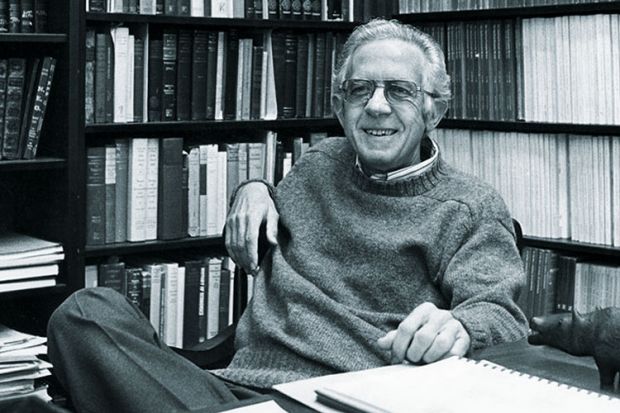Nathan Rosenberg was born in Passaic, New Jersey on 22 November 1927 and served as a sergeant in the US Army, stationed in Korea (1945-47).
He took his first degree at Rutgers University before going on to the University of Oxford as a Fulbright Scholar (1952-54) and then the University of Wisconsin for a PhD in economics (1955).
He taught at Indiana University (1955-57), the University of Pennsylvania (1957-61), Purdue University (1961-64), Harvard University (1967-69) and the University of Wisconsin (1969–74).
In 1974, however, Professor Rosenberg was recruited to Stanford University and stayed there for the rest of his career, although he did have a brief interlude as visiting Pitt professor of American history and institutions at the University of Cambridge (1989).
At Stanford, he directed the programme on values, technology and society (1976-78), headed the economics department (1983-86) and led the technology and economic growth programme from 1987 until he retired in 2002 as the Fairleigh S. Dickinson Jr. professor of public policy.
A pioneering expert on the economic history of technology, Professor Rosenberg incisively analysed the relations between scientific advance, economic growth and technological innovation. He always stressed the significance of uncertainty – even inventors can seldom predict where their innovations will lead – and the case for encouraging a diverse group of independent risk-takers.
Perspectives on Technology (1976) was explicitly praised by Douglass C. North in his 1993 Nobel Prize lecture as an “important contribution” that revealed how “the impetus for and consequences of technological change have ongoing implications which need to be integrated with institutional analysis”.
How the West Grew Rich: The Economic Transformation of the Industrial World (with L. E. Birdzell, 1986) was ranked among “the top ten books to read about international economic history” by Foreign Policy magazine in 2009.
Professor Rosenberg’s other works include Exploring the Black Box: Technology, Economics, and History (1994), The Emergence of Economic Ideas: Essays in the History of Economics (1994) and Paths of Innovation: Technological Change in 20th-Century America (with David C. Mowery, 1998).
He was elected as a member of the American Academy of Arts and Sciences and the American Association for the Advancement of Science, and also received the Leonardo da Vinci Medal from the Society for the History of Technology in 1996, the citation for which described him as having “almost single-handedly changed the way economists and economic historians think about technology and the nature of technological change”.
He died on 24 August and is survived by his wife Rina, four children and nine grandchildren.
Register to continue
Why register?
- Registration is free and only takes a moment
- Once registered, you can read 3 articles a month
- Sign up for our newsletter
Subscribe
Or subscribe for unlimited access to:
- Unlimited access to news, views, insights & reviews
- Digital editions
- Digital access to THE’s university and college rankings analysis
Already registered or a current subscriber?




